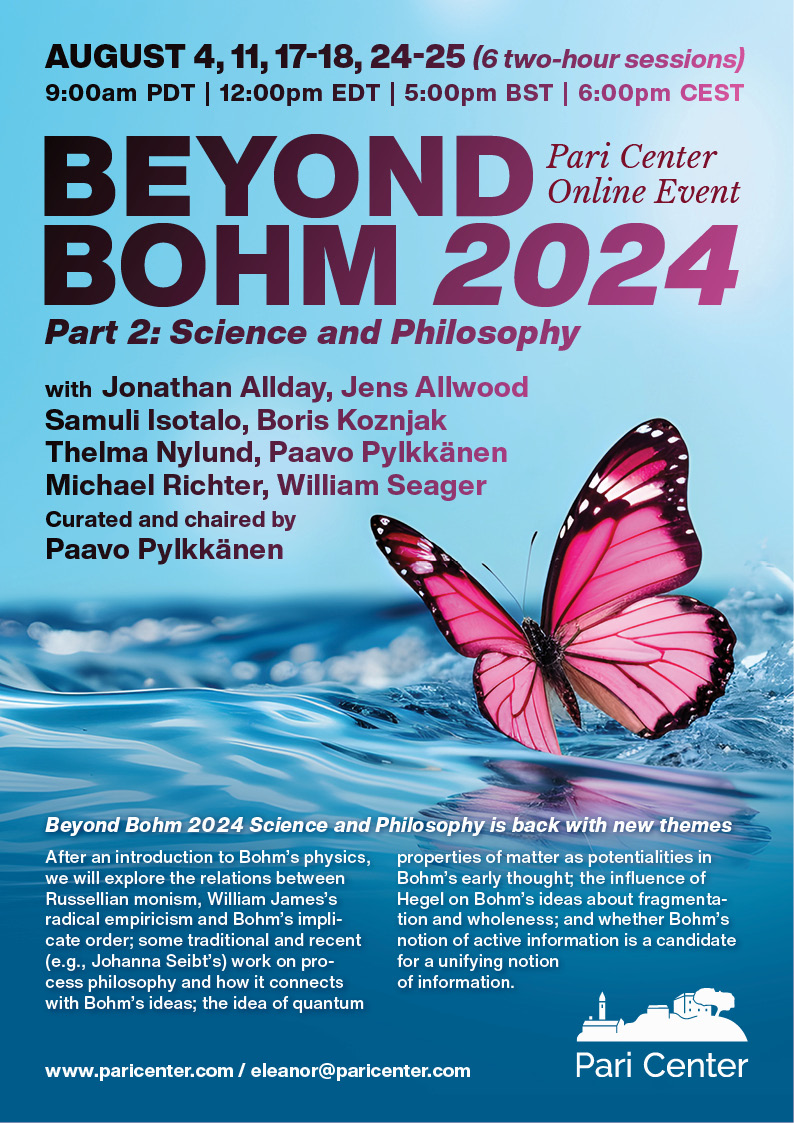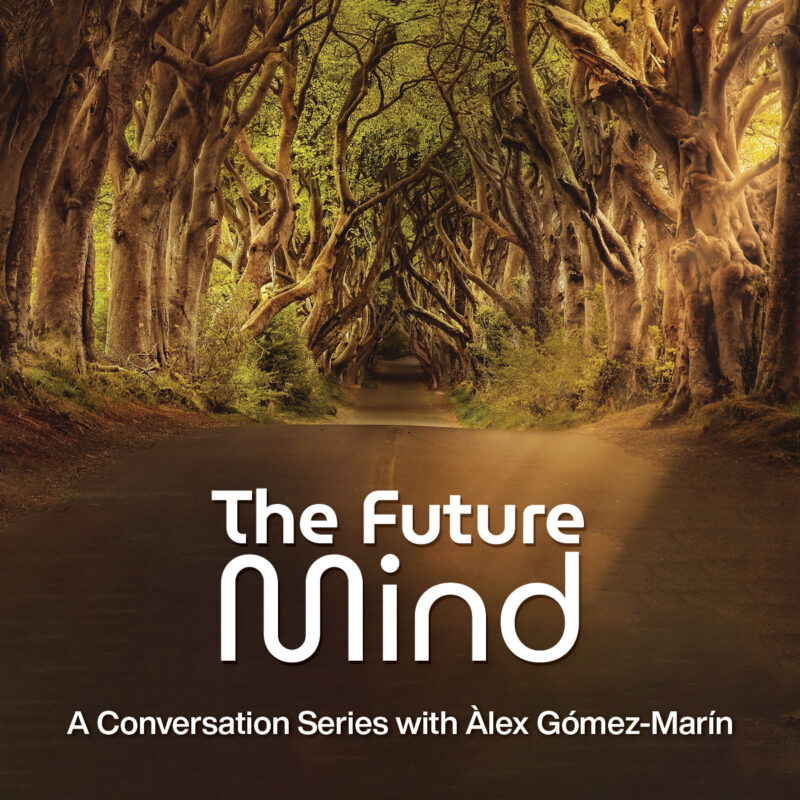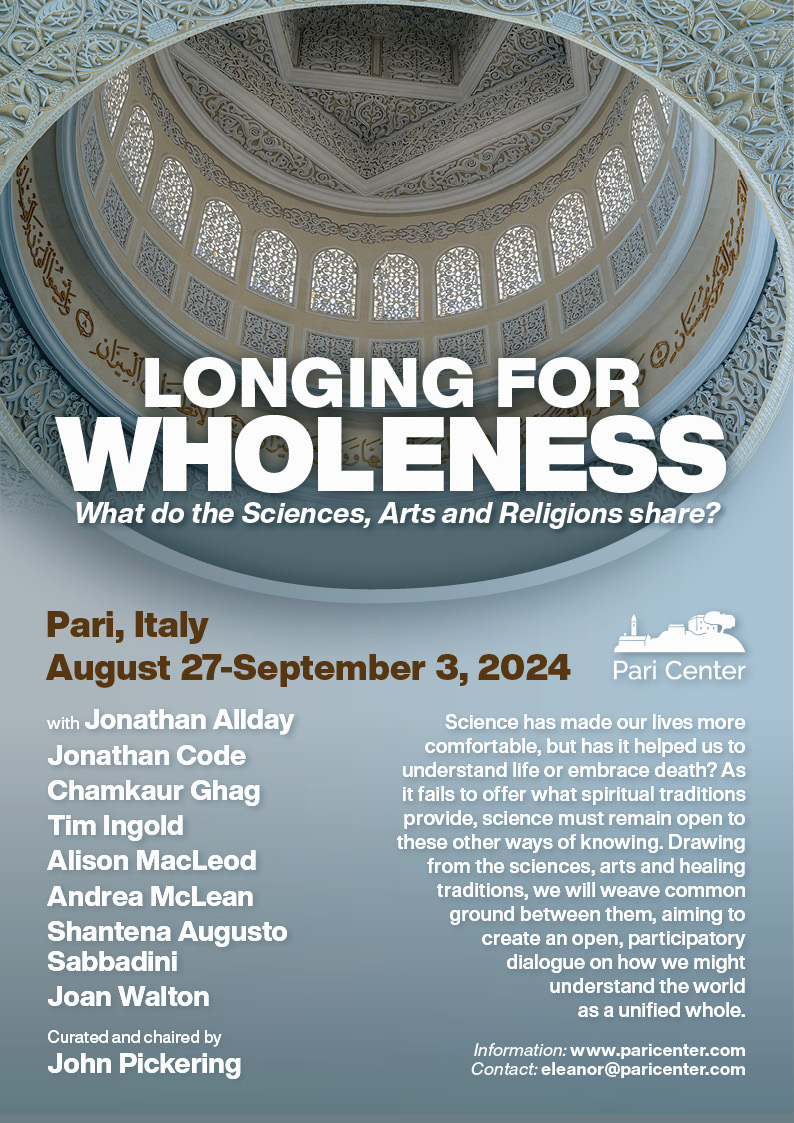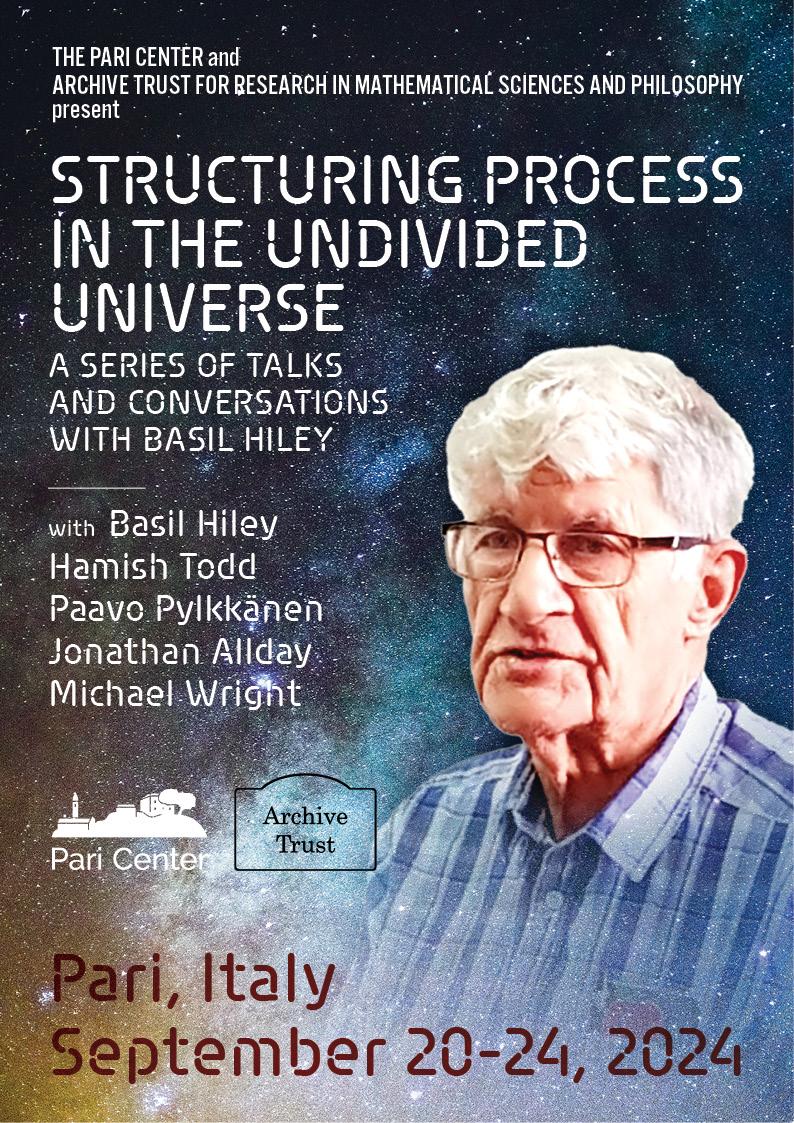Your cart is currently empty!
Beyond Bohm 2024, Part 2 – A Comparative Overview of Process Metaphysics and Substance Metaphysics & Indeterminate, Concrete Individuals in Johanna Seibt’s General Process Theory
Samuli Isotalo will present two ways of doing metaphysics in their general outlines, but do so from the perspective of process metaphysics. Thelma Nylund will argue that Johanna Seibt rejects successfully several traditional ontological presuppositions and that understanding entities as the more or less indeterminate, yet concrete individuals of general process theory, provides philosophers with novel tools for ontological inquiry.




